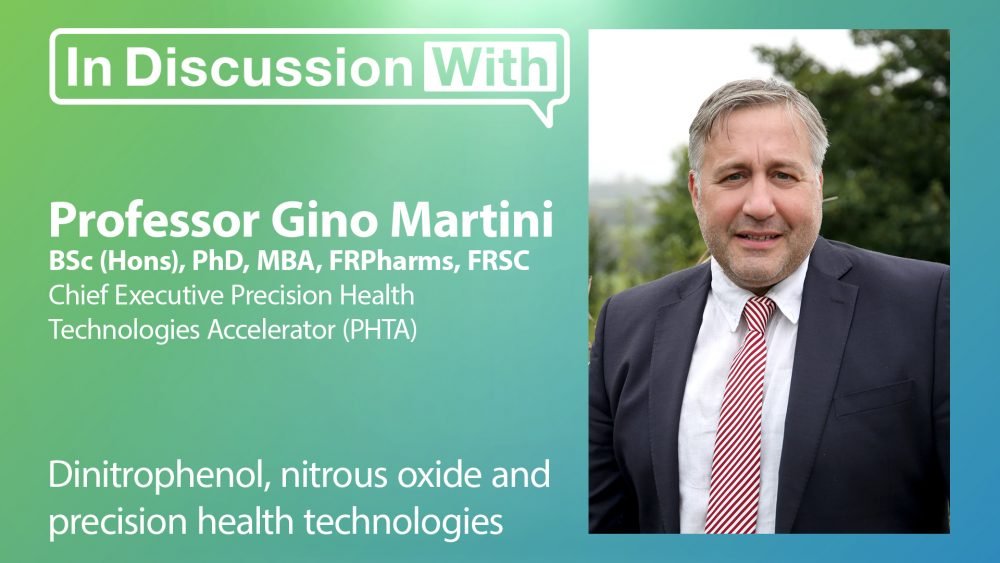Advertisment
Dinitrophenol, nitrous oxide and the PHTA

Professor Gino Martini was recently appointed as the Chief Executive of the Precision Health Technologies Accelerator (PHTA) at Birmingham University. Previously he was Chief Scientist at the Royal Pharmaceutical Society (RPS). In this series of interviews, he describes his campaigns against the misuse of dinitrophenol and nitrous oxide and his new role at the PHTA.
In his previous role as Chief Scientist at the RPS he took a particular interest in the unwelcome resurgence in the misuse of dinitrophenol (DNP) for weight loss. Despite being described in the 1930s as “extremely dangerous and not fit for human consumption”, it has reappeared in Internet sales. Professor Martini argues that it should now be banned.
He has also campaigned against the recreational use of nitrous oxide. It is often believed to be harmless but prolonged or intense exposure leads to inactivation of vitamin B12 and potentially serious neurological damage.
The recent appearance of large (empty) canisters of nitrous oxide on the streets suggests an escalation in its use. The gas has legitimate uses in the food industry and this makes its misuse difficult to combat. Proper checks at the time of purchase, combined with measures to raise awareness of the problems could reduce the quantities available on the streets, he suggests.
The Precision Health Technologies Accelerator (PHTA), at the University of Birmingham, will bring together innovators and entrepreneurs in life sciences and connect them with clinical and academic experts in the West Midlands region. As the Chief Executive of the PHTA, part of Professor Martini’s role is to bring in new businesses and encourage start-ups from universities and hospitals in the region. Pharmaceutical expertise is important in translational medicine and is needed more than ever now that increasing numbers of biological agents are being developed, he argues.
Experiences during the coronavirus pandemic have shown the real value of community pharmacy and Professor Martini believes that community pharmacists could take on more diagnostic and prescribing functions. Moreover, the pharmacy degree can be seen as a ‘passport qualification’ that provides opportunities for pharmacists in numerous areas. “Don’t be constrained by your thinking…. Utilise the qualification for what it is – a kitemark of value, a kitemark of your ability to do things differently”, he says.
Visit www.phta.co.uk for more information on the Precision Health Technologies Accelerator (PHTA).
Read and watch the full series on our website or on YouTube.





